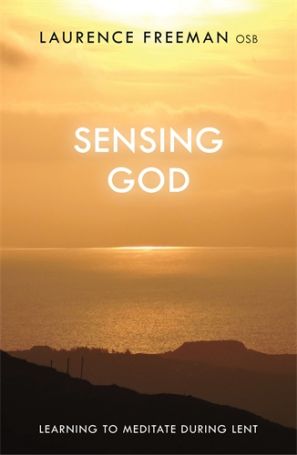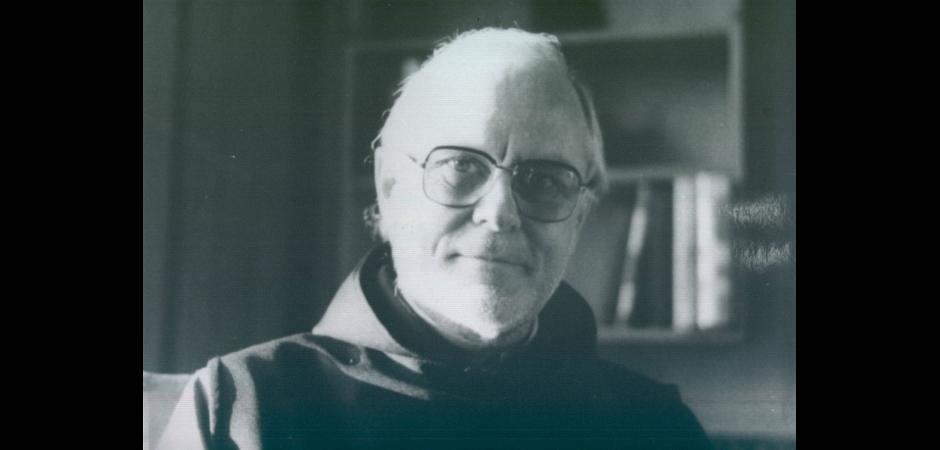Father Evdokinov has written: “God created the angels in silence, so our fathers tell us. God guides those who are silent, whereas those who are restless cause the angels to laugh”.
I believe that the angels laugh at this world of ours, so full of restlessness, at all our meetings with their overflow of words, at our talk that cannot create relationship.
I think the angels also laugh at us, dedicated Christians though we are, who should remember Psalm 127: “Except the Lord build the house,/ They labour in vain that build it./ Except the Lord keep the city,/ The watchman wakes in vain./ It is vain for you to rise up early, to sit up late,/ To eat the bread of sorrows:/ For so he gives his beloved sleep”. I think the angels laugh at us, who know this psalm and repeat it frequently in our prayers, but who are breathless with anxiety and worry about too many things, even in our pastoral work.
I must congratulate Father Laurence, whose book will continue to help men and women – both religious and ordinary church-goers, as well as those still searching for an answer – to enter into Christian meditation and the experience of silence. Christian meditation makes all the difference!
Father Evdokinov has written: “God created the angels in silence, so our fathers tell us. God guides those who are silent, whereas those who are restless cause the angels to laugh”.
I believe that the angels laugh at this world of ours, so full of restlessness, at all our meetings with their overflow of words, at our talk that cannot create relationship.
I think the angels also laugh at us, dedicated Christians though we are, who should remember Psalm 127: “Except the Lord build the house,/ They labour in vain that build it./ Except the Lord keep the city,/ The watchman wakes in vain./ It is vain for you to rise up early, to sit up late,/ To eat the bread of sorrows:/ For so he gives his beloved sleep”. I think the angels laugh at us, who know this psalm and repeat it frequently in our prayers, but who are breathless with anxiety and worry about too many things, even in our pastoral work.
I must congratulate Father Laurence, whose book will continue to help men and women – both religious and ordinary church-goers, as well as those still searching for an answer – to enter into Christian meditation and the experience of silence. Christian meditation makes all the difference!
Through Christian meditation you meet God. It produces the inner attitude that makes contemplation possible. A capacity for contemplation, whatever the life you lead and whatever your knowledge of theology. When, as a parish priest, Saint Jean Vianney asked the peasant in Ars what he said to the Lord when he stood looking up at the shrine, he replied: “I gaze at him and he gazes at me!”.
As it was for the prophet Elijah, so also for us the voice of God that touches the heart and renews the inner self normally comes not in a great strong wind, nor in an earthquake, nor a fire, but in a still small voice.
An enlightened representative of modern Hinduism, Vivekananda, has also written:
Sit by the edge of the dawn / and the sun will rise for you.
Sit by the edge of the night / and the stars will shine for you.
Sit by the edge of the stream / and the nightingale will sing for you.
Sit by the edge of silence / and God will speak to you.
So, too, the Muslim mystic, al-Hallag, declared: “People go on pilgrimage to Mecca, but I go on pilgrimage to He who dwells in me”.
Saint John Chrysostom also helps us to understand that this is indeed the path: “Seek the key to the heart. That key, you will find, opens the gate of the Kingdom, too”.
Father Laurence helps people to discover that key as well.
First he helps people to be present to themselves, “to be here and now”. “The mind lives in the past thinking of things that have happened; or it makes plans for the future, imagining what will happen, often in a state of anxiety and worry…It is very hard, on the whole, to stay rooted in the present” (J. Goldstein). Precisely because we are not wholly in the present moment, we lack the inner serenity and the ability to radiate peace.
In one of the documents from the monastic community in Taisé we find: “Within each human being there is an expectancy that never ceases and is never lost. It is our waiting for God. Even in those who do not believe that expectancy is there, implicitly. For a believer it is the hope for that which cannot be seen. It is there, for the Christian also, this contemplative waiting for Jesus Christ who loves, prays and is reconciled in us. In this expectancy, to all those who listen to God by day and by night, comes the answer: peace”.
Christian meditation does not detach us from the world and from our brothers and sisters. Quite the contrary. According to Saint Serafinus of Sarov: “First find inner peace and silence, and a multitude of human beings will find salvation in you”.
Saint Basil states with great confidence that: “He who prays has his hand on the rudder of history”.
Professor Giorgio La Pira, the great Christian mayor of Florence whose centenary of birth we are now celebrating in 2004, was profoundly convinced of this truth. When he was elected to the Chamber of Deputies in 1948 he wrote: “Always return to the root: deep prayer as meditation and adoration. The grace of Christ, with the gifts of the Spirit that grace brings and the gentle presence of the adorable Trinity in us: this is the propulsive source of energy: the spring of living water is here: this source and this spring launch the apostolic movement that is destined to involve other souls in this divine circuit of grace and charity”. For this reason he also taught that “a cloistered monastery, thanks to the potency of prayer it contains, becomes the power moving the whole history of mankind” and defined prayer as “the most profound, the most revolutionary form of political action”.
Thus, as Father Laurence so rightly teaches, meditation is not an escape from our problems, it is not a passing on the other side or a going beyond the world of the needy, but rather the acquisition of that freedom, generosity and quickness which allows you to give not only that which is yours, but to offer your very life.
Inner silence and Christian meditation enable the Holy Spirit, which dwells in us, to love God in us, with us and through us. It is “the grace of friendship”!
Since it is true that the world of today, as Pope Paul VI so aptly put it, would rather listen to witnesses than to teachers and, if it listens to teachers it does so because they too bear witness, this book will help many by the strength of the experience as witnessed by Father Laurence, and will make many of us understand that if we wish to teach others the way to deep prayer, to authentic contemplation, then there is no other way but this: to show the way by walking ahead along this path.
Cardinal Silvano Piovanelli, emeritus Archbishop of Florence (Italy), was born on 21 February 1924 at Ronta in the Mugello near Florence. He studied at the seminary in Florence (1935-1947) and was ordained in 1947 (13th July).
His first job, given to him by Cardinal Elia dalla Costa, was to be assistant vicar to don Giulio Facibeni in the parish church of Rifredi, where the latter had founded the association of the Divina Provvidenza “Madonnina del Grappa”[1]. His work in Rifredi, as a very young priest in the early post-war years, brought him face to face with the serious issues of a vast and complicated parish community on the industrial outskirts of Florence that was developing around two large factories.
In October 1948, he was offered a job that would deeply influence his life as teacher and priest: for twelve years he worked with don Enrico Bartoletti, as the assistant rector of the minor Seminary. At that time life in Florence was dominated by such figures as Giorgio La Pira, Nicola Pistelli and don Raffaello Bensi; these were the intense and productive years prior to the Vatican Council.
When Monsignor Bartoletti was transferred to Lucca in 1960, he was made dean at Castelfiorentino, a large town on the borders of the archdiocese, close to Volterra and Siena, which had a long tradition of vigorous politics and strong ideology, where in there post-war years there had been violent tension and a resurgent anti-clericalism, resulting in a rift in the social and religious life of the area. He carried on the work of restoring peace that his predecessor, Monsignor Giovanni Bianchi, who became Bishop of Pescia, and thereby he laid the foundations of a respectful and productive collaboration. His main task, however, was to awaken the church community to its responsibilities. Thus he set up the first experiment in the Archdiocese of how to conduct a pastoral community: the first pastoral parish council to deal not only with specifically pastoral issues, but also with administrative matters.
In 1979, Cardinal Giovanni Benelli, Archbishop of Florence, called him to join the Curia of the Archdiocese, and gave him a job as Pro-Vicario and later Vicario Generale.
On 28 May 1982 he was elected to the titular Church of Tubune in Mauritania, and was made Assistant Bishop at the same time. He had already accompanied Cardinal Benelli on his pastoral visits: an experience that had been “thought anew” and carried out with radically new criteria compared to such visits in the recent past, which strove both to evangelise and encourage the laity to undertake specifically missionary tasks.
At Cardinal Benelli’s sudden death, in 1982, he took on the pastoral care of the Archdiocese and on 18 March 1983 John Paul II made him Archbishop of Florence.
He was nominated Cardinal of the Concistorio of 25 May 1985, with the Title of Santa Maria delle Grazie in Via Tionfale.
From the 21 March 2001 he is the Emeritus Archbishop of Florence.
[1] The Madonnina del Grappa takes care of the education of very poor boys and orphans.



